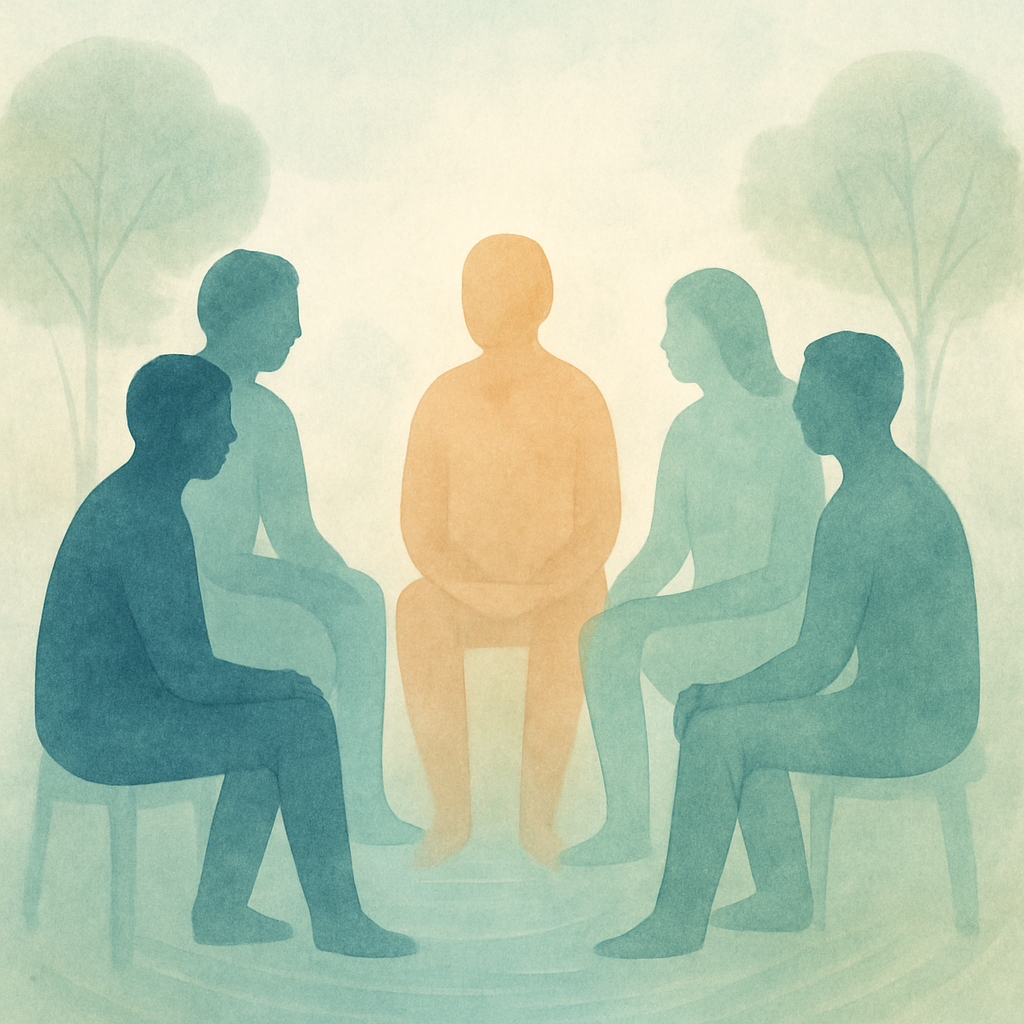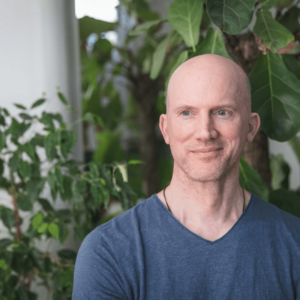Understanding the role support groups play in mental health crisis recovery is essential for individuals, families, and professionals seeking effective support during difficult times. Support groups offer a space for people to share experiences, reduce isolation, and feel understood by others who have faced similar challenges. At Khiron Clinics, we recognise that peer support and group connection can make a real difference in the recovery process.
This article looks at support groups in mental health crisis recovery and how they contribute to emotional stability, long-term healing, and community care. From peer-led insight to structured group therapy, support groups can be a steady and valuable part of every stage in the recovery journey.
Group therapy at Khiron Clinics is facilitated by experienced trauma-informed clinicians. Sessions are carefully structured and may include somatic movement, art therapy, or body-based practices depending on each individual’s needs.
These therapeutic groups are not unstructured sharing spaces, but guided experiences designed to support emotional regulation, trauma resolution, and nervous system healing. Group therapy provides consistent emotional support and complements individual treatment by helping clients work through a wide range of mental health conditions, from low mood to complex post-traumatic stress.
Why Support Groups Matter During a Mental Health Crisis
A mental health crisis can leave someone feeling lost, alone, or unsure of how to move forward. During these times, support groups provide a steady point of connection. They offer a space where people can talk about what they’re going through without fear of judgement. This kind of open environment helps reduce feelings of shame and encourages honest conversations.
At Khiron Clinics, we use group therapy as part of a trauma-informed approach. Support groups are guided by experienced clinicians and often include people who have been through similar challenges. These lived experiences can offer meaningful insight, showing that recovery is possible even when it feels far away. Whether someone is dealing with anxiety, depression, or a more complex diagnosis, the sense of belonging found in a support group can be a lifeline.
Support groups are not about quick fixes. They are part of a wider support system that encourages steady progress, shared learning, and consistent care. Over time, participants often find that being part of a group helps them build confidence, improve communication, and better understand their own needs in recovery.
These benefits are especially important for people dealing with a health condition that may make them feel isolated. A group setting offers a reliable connection point that strengthens social bonds and provides practical coping strategies.
Peer Support and Lived Experience in Recovery
One of the most important aspects of group work is peer support. This is when people who have faced similar mental health challenges share their stories and offer mutual encouragement. It’s not about giving advice. It’s about creating space where everyone’s voice matters.
In support groups, lived experience becomes a strength. When someone shares a personal struggle, others in the group often relate, which helps build trust and understanding. That shared experience can be a powerful tool in breaking down feelings of isolation and self-blame. It shows participants that their reactions and feelings are valid, and that recovery doesn’t have to be a solitary journey.
These peer-led interactions are often supported by a therapist or group leader who ensures the space stays safe and respectful. This mix of professional oversight and personal connection helps create a balanced group dynamic where people feel supported emotionally and practically. At Khiron Clinics, we see how this blend of structure and shared humanity allows group members to reflect, learn, and grow at their own pace.
Peer support interventions are now recognised as valuable components of mental health recovery. These models are used not just in clinical care but in recovery college programmes, self help groups, and community-based services across the UK.
How Support Groups Improve Mental Health Recovery Outcomes
Some of the ways support groups contribute to better outcomes include:
- Reducing feelings of isolation and loneliness
- Providing ongoing recovery support between formal therapy sessions
- Helping people build social skills and self-confidence
- Encouraging consistent participation in care programmes
- Offering a safe space to test new communication and coping strategies
At Khiron Clinics, our group sessions often serve as a bridge between individual therapy and community-based support. They help people transition from more intensive care into everyday life, while still receiving regular encouragement. These groups are especially helpful for individuals who have felt let down by past treatments or who need more consistent emotional support during recovery.
Support groups are also flexible. They can focus on specific themes such as managing emotions, navigating relationships, or building daily routines. Whatever the focus, the consistent thread is a sense of community and the reminder that recovery is possible.
In-person group therapy sessions at Khiron Clinics support the development of emotional regulation, embodied awareness, and relational safety in a guided, trauma-informed setting.
These sessions are intentionally structured and led by qualified therapists trained in somatic and experiential approaches. Rather than general discussion or open sharing, each session focuses on body-based practices that help clients reconnect with themselves and others in a safe and clinically supported way.
Group therapy at Khiron is an integral part of the broader care plan developed by our clinical team, complementing individual therapy and other specialist interventions.
Different Types of Group Therapy and Their Benefits
At Khiron Clinics, we provide group therapy in carefully structured formats designed to support nervous system regulation, emotional resilience, and embodied healing. These sessions are not discussion-based or peer-led support groups. They are guided by qualified clinicians and include therapeutic approaches such as somatic movement, art-based expression, and trauma-informed group processing.
Group therapy at Khiron is always in person. Each session is conducted in a calm, private setting where emotional safety and therapeutic pacing are prioritised. While peer connection may naturally occur, the primary goal is not sharing experiences but engaging in practices that support long-term recovery from trauma and emotional dysregulation.
These sessions are designed to enhance a personalised care plan developed by our clinical team. Whether the focus is on body-based processing, attachment repair, or creative expression, the goal is to help clients rebuild self-regulation, emotional strength, and a sense of connection in a safe, supported environment.
Support for Families, Clinicians, and the Wider Community
Mental health recovery doesn’t happen in isolation, it affects and involves others too. Support groups can also benefit families, carers, and the professionals involved in someone’s care. For families, joining a support group or attending family sessions can make it easier to understand what their loved one is going through. It also provides them with tools for communication and reassurance that they’re not alone in their concerns.
Community support is stronger when everyone involved is informed and connected. Support groups help to build that network,connecting individuals with one another, as well as linking them to wider services and recovery programmes. They give people a way to stay engaged with their own care and allow families and clinicians to feel more confident in supporting them.
At Khiron Clinics, our group therapy model supports not only individual healing but also strengthens the wider system around the person. While we do not run general support groups or offer online courses, we recognise the value of education and guided support for family members and caregivers. Where appropriate, clients may be offered access to family therapy or psychoeducation to help loved ones better understand the impact of trauma, mood disorders, and other mental health challenges.
All group work is led by experienced clinicians and structured around clear therapeutic goals. These sessions may include movement-based therapy, creative expression, or somatic practices, depending on the client’s care plan. Our approach is not about peer discussion, but about structured healing guided by professionals involved in the recovery process.
Encouraging Engagement Through Shared Goals in Group Therapy
At Khiron Clinics, group therapy is designed with intention and structure, helping clients move from crisis to stability in a safe, regulated environment. These sessions are not peer-led support groups, but professionally facilitated therapeutic spaces grounded in trauma-informed care.
Clients may be guided to set SMART goals that align with their personalised care plan. These goals can include developing self-regulation strategies, improving emotional expression, or building daily routines. By working toward these goals in a group setting, clients are able to track progress while receiving therapeutic input from trained clinicians.
Many of our group therapy programmes occur within a structured stay, offering a consistent rhythm of somatic, creative, and movement-based sessions over the course of a few weeks. These sessions complement individual therapy and help create a sense of containment, safety, and continuity.
This structured approach allows each participant to build confidence, reduce feelings of isolation, and reconnect with their body and emotional responses. As clients develop insight and coping strategies in the group, they are better equipped to manage mental health challenges and engage with life in a more grounded, resilient way.
Support Groups as a Pathway to Ongoing Healing
Support groups can be a pivotal part of the recovery journey. For many, they are the first place where isolation begins to soften and hope feels possible again. Being with others who understand, in the presence of trauma-informed professionals, offers a sense of safety and belonging that is often hard to find elsewhere.
At Khiron Clinics, we see support groups as one strand in a wider web of care. Alongside individual therapy, nervous system-focused treatment, and community-based support, they provide structure and connection that help people move from surviving toward living.
If you or someone you know is struggling, remember: you do not have to carry it alone. Support groups can be a place to feel heard, supported, and gently accompanied as you take steps forward.
There’s no single path into group therapy. Some individuals begin by attending for a few weeks as part of a broader treatment plan. These sessions are structured to support emotional regulation, body awareness, and trauma recovery within a safe therapeutic space.
Group therapy can complement one-to-one work or serve as a transitional phase between intensive support and independent living. Over time, many clients report feeling more connected, better equipped to manage emotional challenges, and more able to integrate self-awareness into their daily routines.






